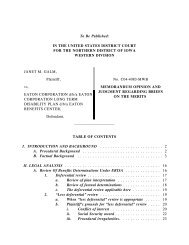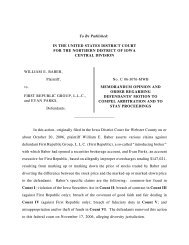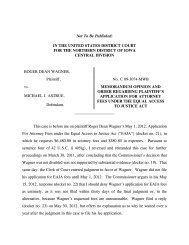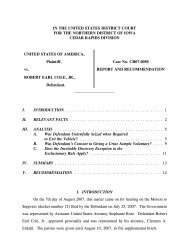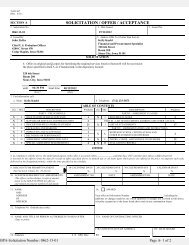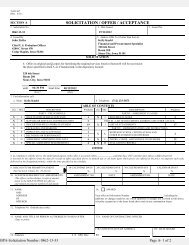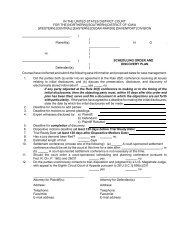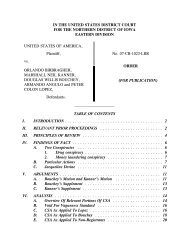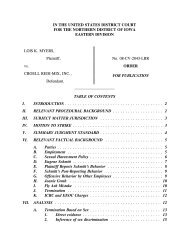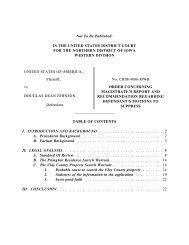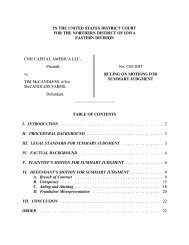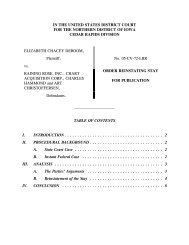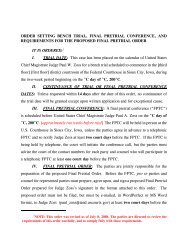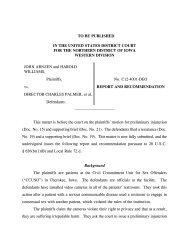Shannon v. Koehler - Northern District of Iowa
Shannon v. Koehler - Northern District of Iowa
Shannon v. Koehler - Northern District of Iowa
Create successful ePaper yourself
Turn your PDF publications into a flip-book with our unique Google optimized e-Paper software.
Notably, the Sixth Circuit Court <strong>of</strong> Appeals in Porter highlighted that the<br />
declarant’s testimony at trial assuaged any potential concerns about reliability <strong>of</strong> the<br />
recorded recollection:<br />
Rule 803(5) . . . is not <strong>of</strong> a particularly unreliable genre. This<br />
is because the out-<strong>of</strong>-court declarant is actually on the witness<br />
stand and subject to evaluation by the finder <strong>of</strong> fact . . . . If<br />
the jury chose to believe what [the declarant] said in the<br />
recorded statement rather than what she said while testifying,<br />
that decision was at least made based upon which it observed<br />
and heard from her in court.<br />
Id. (citing United States v. Williams, 571 F.2d 334, 350 (6th Cir. 1978)); see also Parker,<br />
327 F.3d at 215 (finding that police <strong>of</strong>ficer’s memorandum was a recorded recollection<br />
where, even though he did not remember the events described, he testified that he had<br />
“reason to believe” that it accurately reflected his knowledge at the time; and concluding<br />
that the <strong>of</strong>ficer’s availability for cross-examination sufficed to ensure the statement’s<br />
reliability).<br />
The circumstances here do not indicate that Navrkal’s recorded statements<br />
accurately reflected the knowledge she had about the incident. Her statements may<br />
otherwise meet the requirements for a recorded recollection: she has no present<br />
recollection <strong>of</strong> what occurred, see Appendix to Plaintiff’s Second Motion in Limine,<br />
Videotaped Deposition <strong>of</strong> Cristina Navrkal at 35 (docket no. 116-3); she did appear to have<br />
at least some knowledge <strong>of</strong> what occurred because she was an eyewitness (though she was<br />
intoxicated at the time); and she made the statements shortly after the incident, which<br />
suggests they were made while the knowledge was fresh in her mind. Nevertheless, her<br />
statements fail to meet the requirement that they correctly reflected the knowledge she once<br />
had.<br />
50



